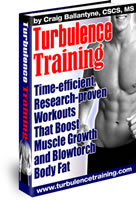Thursday, September 14, 2006
Weight Training for Seniors - Denny Waldarmo
One of the most amazing men I ever met used to work out in the same gym that I used when I lived in Florida. When I first saw him, I figured his age to be late 50s ... perhaps 60, tops. I was astounded one day to learn that he was 73.
His face was that of a man in his 50s, but his body was that of a 30-something. He could lift heavier weights than most men in that gym who were half his age. And whenever he started swinging around on the parallel bars, people would stare in wonder and admiration.
This was a guy, I was sure, who had been working out since he was a teenager. I assumed he had been a competitive athlete of some kind when he was younger, perhaps even an Olympian.
I was flabbergasted, therefore, when this gentleman explained to me that he had only started working out when he turned 55. Until then he had led a completely sedentary life. When he began weight training, he said, he could barely shuffle into the gym, and even lifting the lightest of dumbbells for more than a few repetitions was a strain.
Clearly, this 73-year-old could serve as a spokesmodel for the power of weight training to remake a person beginning at any age.
Perhaps you cannot imagine yourself, or your parents if they are seniors, ever achieving a fraction of what my gym mate had accomplished in terms of building strength and muscle. True, he was exceptional. But remember, he started at about the same place that you might be now. He started slowly, built gradually and -- most important of all -- stuck with it.
My advice to someone beginning weight training in their 50s, 60s or 70s is basically the same as it would be for anyone. Start out easy. Buy some inexpensive dumbbells and perhaps an exercise bench to use in your home. Normally I suggest getting a pair of 10-pound weights and a pair of 15-pounders. But if these seem a bit much for you at first, don't be ashamed to start out lighter. You can move up to heavier weights when you've built up your strength.
As for which weight lifting routines are best suited for seniors, there's no one prescription that will meet everyone's needs and individual situation.
You may have heard it said that as we get older, our legs are the "first to go." There's some truth to that. So, you might want to concentrate on exercises that work your legs, especially at the beginning. Squats are good. Books on weight training show people doing them with barbells or dumbbells resting on their shoulders. You can do squats without any weights at all, though, if you like--you'll still be building leg muscles.
Speaking of weight training books, skip those that are targeted specifically to seniors. Too many of them treat their audience as nincompoops or assume that older people should set low fitness targets for themselves.
Instead, I recommend obtaining a well-illustrated bodybuilding book, even if it looks as though it's pitched to 20-year-olds aspiring to become competitive weight lifters. A book like that won't short-change you by leaving out exercises that might seem difficult at first, but that provide tremendous benefits. There are also some excellent weight training systems available on the Internet, in the form of downloadable e-books.
My advice: Get going now. Whether you're 75 or 25, the main key to effective weight training is simply to start.
Denny Waldarmo is a fitness coach who writes on exercise and diet topics. He is an advocate of weight training, particularly the system taught in "The Truth About Building Muscle." Denny's eye-opening review of this program, which will help anyone seeking to build muscle size and strength, is available on his Web site: http://www.Solid-Gold.info/truth-about-building-muscle.html.
Republication of this article is welcomed and encouraged! If you use it, you must keep this author's informational text with it, including the live link to the author's Web site.
Article Source: http://EzineArticles.com/?expert=Denny_Waldarmo



